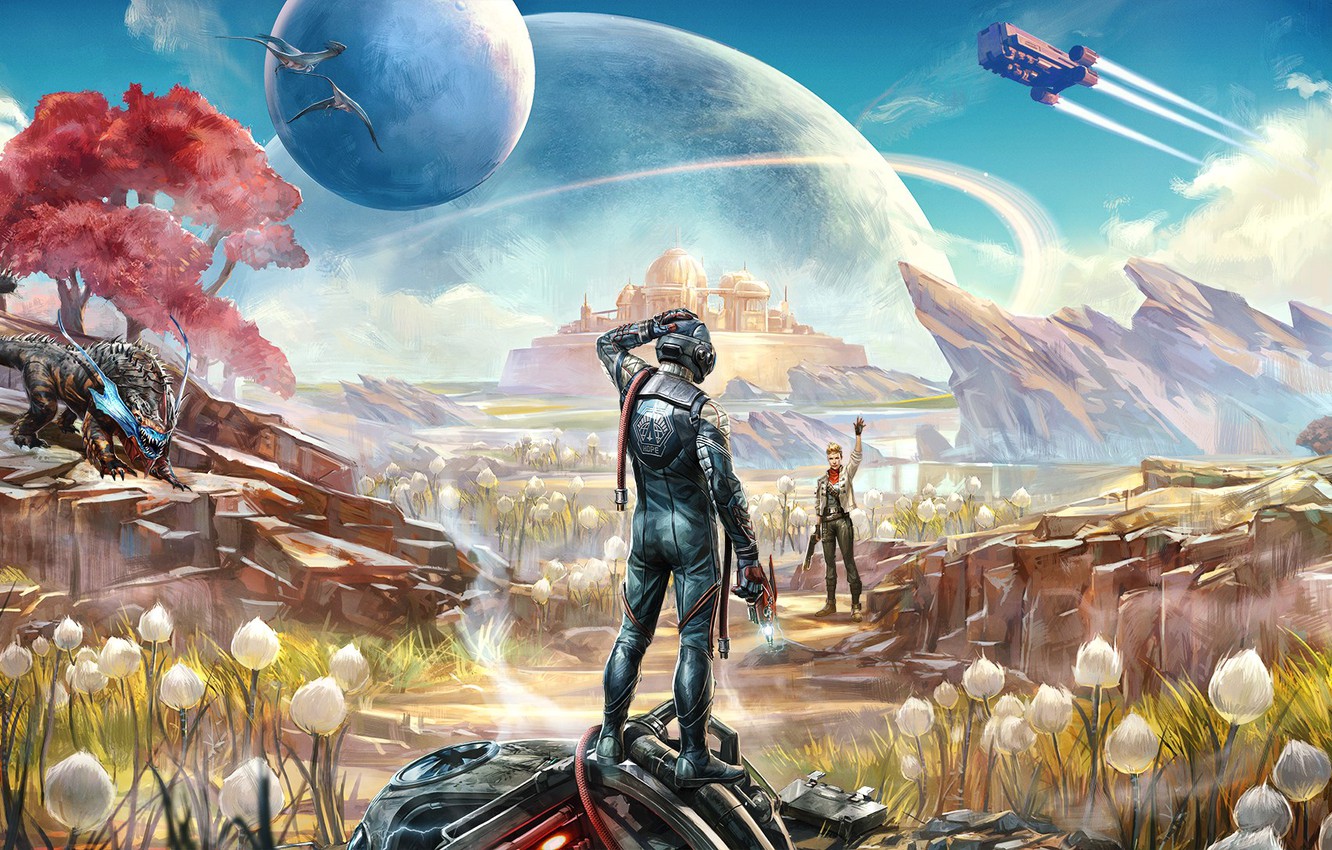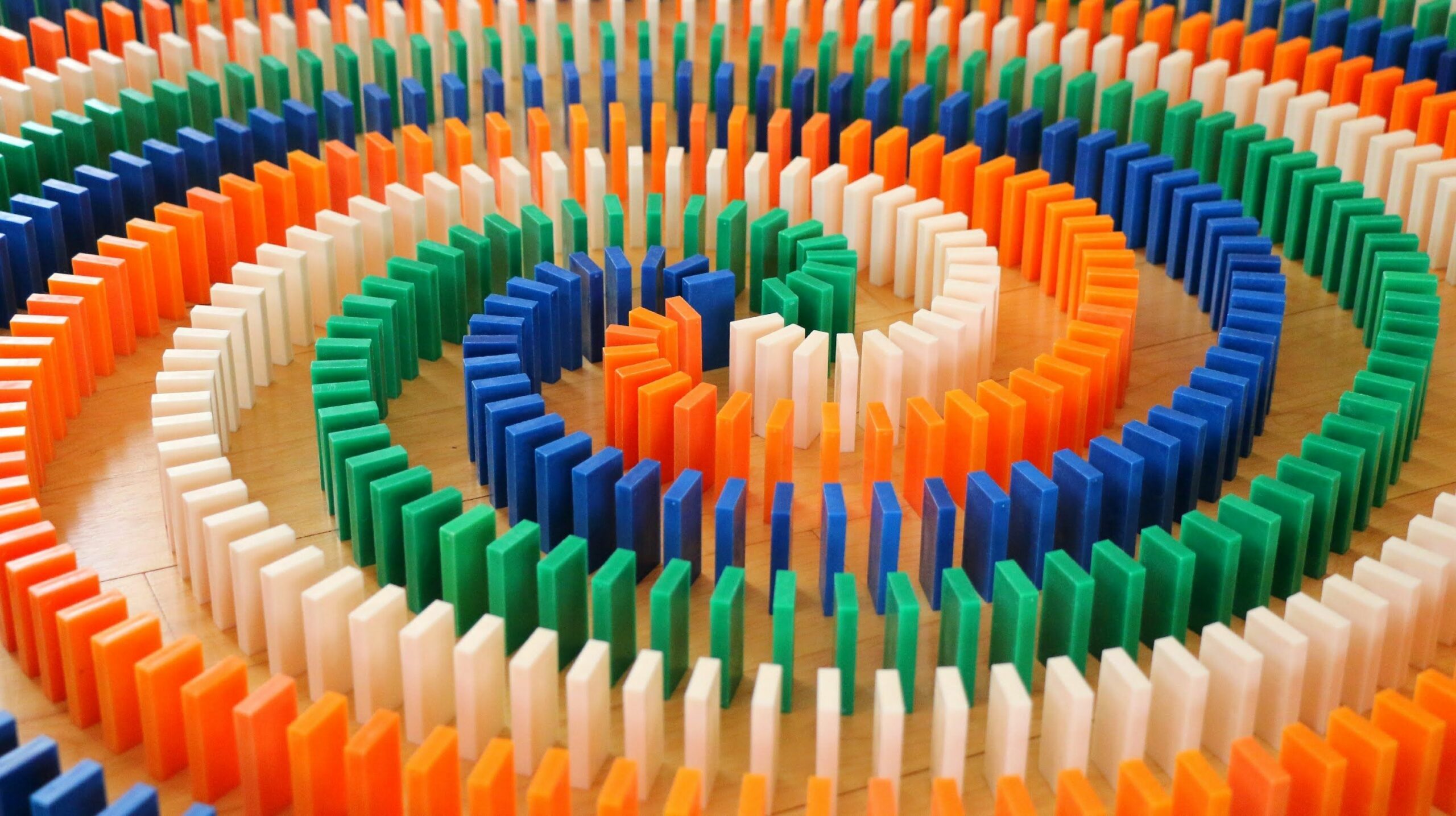When we strain to achieve a definite outcome – and there is no such as straining for an indefinite outcome (or any such thing as an outcome that isn’t definite, for that matter) – then at the same time that the straining (which is the bit we understand) is going on something else is going on too. The ‘straining’ exists on two levels simultaneously, we could say – one is the mechanical or physical level where ‘effective actions need to be taken’ and the other is the mental or psychological level where we are actually distorting our view of reality without being able to see that we are doing so. Because we are distorting our view of reality without being able to see that we are doing so we are trapped in this distortion. We’re trapped in the distortion because we don’t know that it’s a distortion – we think that it’s ‘all that there is’.
Any sort of mental straining is going to distort our perception of reality. This is something that is intuitively (if not rationally) obvious – any sort of effort with regard to ‘directing our attention somewhere specific’ is going to skew our view of what is actually there because what we’re actually doing when we direct our attention is that we are is ‘limiting our awareness’. And we’re not just ‘limiting’ it, we’re closing it down! To give a particular example of this sort of thing, when we listen we spoil everything by ‘putting effort into it’; the endeavour is counterproductive – as everyone knows, the more we strain the less we are able to actually hear! When we focus our attention on what we are about to hear this is impossibly problematical because we don’t know what we are about to hear. We don’t know in advance what we are suppose to be hearing so how is concentrating or focussing hard going to help?
It’s the same thing if we listening to someone talking and we’re straining to hear what they’re saying – we don’t know what they’re going to say and so straining just isn’t going to help. Not only does straining not help, it completely ‘wrong-foots’ us; it completely wrong-foots us because we are guaranteed to be straining in the wrong direction. What we’re actually doing here is that we’re assuming that we know what’s going to happen before it happens. We’re assuming that we know what’s going to happen before it happens and then we’re focussing our attention in this direction, which necessarily means that we’re ignoring all the other directions. If what is said turns out to be identical to our expectations for it then we’re onto a winner here but this never actually happens! How often do we know what someone is going to say before they say it, after all? And that’s just people we’re talking about here – reality itself is far more unpredictable than most people ever are…
So what happens when we ‘strain our attention’ is exactly this – we have made some sort of an assumption with regard to whatever it is that we are to attend to and this straightway wrong-foots us. How could doing this not set us off on the wrong foot – it’s like being in a race and guessing when the starting whistle is going to be blow instead of just listening for it like everyone else. As a tactic, this just isn’t going to pay off. When we start straining with our attention our relationship is what we are assuming is going to happen rather than with what actually does happen. What we assume is going to unfold is very different indeed from what actually does unfold – the one is our own mental projection, the other is reality itself (which by definition is not a mental projection). We don’t know at all what kind of a thing it is that is going to unfold – we don’t even know the kind of things that could unfold! The whole field is completely wide open and so there is no point in straining. Straining means ‘being open to one the one direction’ and if we’re only being open to the one direction (i.e. the direction of how we assume reality is going to unfold) then we’re not being open at all.
We can’t be ‘putting effort into it’ and ‘staying open to reality’ at one and the same time. And ‘staying open to reality’ is the only way to have a relationship with it, as we have just said. There’s no other way to have a relationship with reality other than being open to it. The only way a relationship can be a relationship is if it is quintessentially unbiased, or ‘open’. It’s all or nothing. So what happens when we start straining to perceive reality is that we start making assumptions about what reality is, how reality is going to manifest to us, and once this happens then there is an informational collapse in which all ‘relatedness to reality’ is lost. Once we start relating to our expectations of reality rather than reality itself then a switch-over’ occurs – we switch abruptly from ‘open’ to ‘closed’ and we can’t tell the difference. We convert the one into the other. We are then trapped in a distorted version of reality; we’re trapped in it because we don’t know that it’s a ‘distorted version of reality’ – on the contrary, we think that this is the only way things could ever be.
The more we strain the more narrowly distorted our ‘assumed version’ of reality becomes. Another way of putting this is to say that the more we fall into the grip of desire or craving the more distorted our picture of reality becomes. If we are experiencing very intense craving then the picture of reality that we have will be very distorted indeed. In a flash, reality is converted into something that has no relationship whatsoever to anything real – in a flash, reality gets converted into a very crude analogue of itself. It is perfectly easy to see how this conversion happens – in the desire-realm (which is where we exist when we are straining to achieve or avoid some definition outcome) there are only two things. Everything gets to be ‘black-and-white’. No matter what the situations starts off as, no matter how nuanced it might initially be, everything very quickly boils down to two things, two categories – these two categories simply being ‘succeed’ or fail’. Of course it is going to be the case that when we are trying or straining or striving everything will always come down to a matter of either winning or losing – what else would we possibly be interested in? When I am in the grip of intense desire do I really care about anything other than the object of my desire? ‘Not caring about anything else’ is what makes desire into desire, craving into craving…
In the desire realm (which as we have said is the realm we inhabit when we’re straining or striving) everything always boils down to either getting what we want or not getting it. What else would things boil down to? When our desire is fulfilled then this feels good, this feels right, and when it isn’t that that feels irredeemably bad, that feels like a total disaster. From the point of view of the one who is struggling and striving in the desire realm, there couldn’t be two places that are further apart than the place of getting what you want and the place of not getting it. These two opposites constitute the all-determining poles that say what reality is for us – the whole drama of our life plays out between the pole of winning and the pole of losing. We can think of one of those illustrations of the magnetic field lines that are generated by a standard bar-magnet – the field lines sprout out in a thick bunch from the North Pole at the top of the magnet, spread out in space as they travel downwards and then bunch up again just before they re-enter into the South Pole. The point we’re making here is that these ‘magnetic field lines’ define the whole of reality for us when we’re in the polar world.
This is all perfectly straightforward and it is clear that we can indeed create a fully-functional ‘pragmatic world’ for ourselves in this way. What we create is a bounded world which has no edges and where there are only ever two directions that we can travel in – either we can travel towards the North Pole or towards the South Pole! ‘Space’ – in this polar world – equals the nominal separation between plus and minus, up and down, gain and loss. All of this might be perfectly straightforward but it is also at the same time perfectly absurd. It’s absurd because there’s no such thing as plus and minus, up and down, gain or loss in reality – this whole very compelling and very plausible business of polarity is only there because we have created it.
If only we could see things clearly we’d fall over laughing at our foolishness in imagining that there could be such a thing as a world made up of such abstract entities as yes and no, plus and minus, right and wrong – a sealed world with PLUS capping everything on top and MINUS underpinning everything at the bottom and everything having to happen between the two mutually conditioning poles. Where do the yes and no come from? Yes to what, no to what? How did we ever end up with a situation where the only way to orientate ourselves is in terms of ‘right’ and ‘wrong’? How did such terrible narrowness and rigidity ever come about? In order to exist in a closed polar world we have to be gearing everything towards some kind of definite expectation about the way things ought to be, some kind of definite expectation about the way things are going to be. Only then can we have right and wrong. But, as we have already said, in reality there can be no such thing as ‘a definite expectation of what is to happen next’. Such an expectation is entirely meaningless…
When we have expectations as to what is going to happen next (or with regard to how things ought to happen next) then we focus narrowly in this direction and ignore all the other directions – the other directions that we don’t know about and don’t care about. The problem with this however is that the direction which we focussing on (or straining towards) doesn’t actually exist – it can’t exist because it’s not possible to know what is going to unfold next as reality reveals itself. That’s a fundamental impossibility – reality isn’t the same thing as our closed (or ‘rational’) mind, after all. If reality was the same thing as our closed mind then there wouldn’t need to be such a thing as reality. Reality would be unnecessary in this case; reality would be redundant and we would be able to do without it. When reality is the same as our expectations of it then this is what we have been calling ‘the polar world’ – which is the same thing as ‘the desire realm’ or ‘the realm of straining / striving’.
What essentially happens when we ‘strain to obtain or avoid a definite outcome which we are either attracted to or repelled by’ is (as we have already said) that the openness of reality gets replaced by the ‘closedness’ of the polar world, which is the world that keeps on looping back to itself. We switch from reality to ‘the closed analogue thereof’ and we never notice the difference. We never notice the switch-over taking place and the reason we never notice the switch-over taking place is because the analogue exactly take the place of the original reality that it is analogizing. The closed analogue of reality is however not a legitimate kind of an affair however – it’s actually a ‘null-set of events’, a ‘null-situation’ (or as JG Bennett puts it, it’s a ‘perfectly compensated’ situation). The reason the analogue is a null situation is because the definite set of expectations that we have about ‘what is to happen next’ is (of course!) identical to the assumption that we had to make in order for those expectations to be in any way meaningful in the first place. The whole set-up is 100% redundant, therefore!
The polar world is a quintessentially redundant world. Nothing ever happens there – nothing ever could happen there because the premise is the same as the outcomes (or events) that happen on the basis of this premise. The expectation that we have about ‘how reality is going to unfold’ is identical to the assumption that we have had to make in order that this expectation may actually be meaningful to us. There is a much simpler way of putting this, of course. What we can say is this:
The expectations that I have regarding the type of outcomes, either attractive or repellent in nature, that are coming my way are essentially the same thing as the premise that that I have had to assume in order for these outcomes to be meaningful, and this ‘premise’ is simply myself. Who else are the outcomes in question going to be either attractive or repellent to, after all?
This is all we need to see in order to understand what the polar world is and why it is ‘100% redundant’ – the diametrically-opposed outcomes of ‘getting what we want’ and ‘not getting what we want’ may seem like the two most different things in the whole wide world but that’s only from the standpoint of the assumed ‘Archimedean Point’ which is the everyday self. That’s the hook that everything hangs on, that’s the reference point that makes the whole polarity of ‘good versus bad’, ‘right versus wrong’ meaningful. But that abstract point of reference, that everyday empirical self, only comes into existence as a result of a distortion that we have got trapped in without knowing that we have got ‘trapped’ in anything. The ‘assumed Archimedean Point’ which is the self only comes about as the result of the straining that is going on – the self creates itself by straining either towards or away from its own projections, in other words…
There is the striver and there are the goals that are being striven for and out of this striving comes both the striver and that which is being striven for, oddly enough. But the point that we have just been making is that the striver and the goals that are being striven for are one and the same thing – they are both the same mutually-conditioning polarity. And when it comes right down to it, there’s no such thing as ‘a polarity’ – there’s just this illusion that there is a self and those objects to which the self is either attracted to or repelled by, and this illusion is purely and simply ‘a function’ of the basic unreality (or ‘regressive tautology’) of the loop that we’re caught up in. The unreality of the self shows itself in the attractiveness or the ‘aversiveness’ (i.e. the compulsiveness) of the mind-objects that we are always either chasing or running away from. The self is always obliged to be either running away from itself or trying to catch itself, we could say, and the reason for this is simply that it doesn’t exist…






